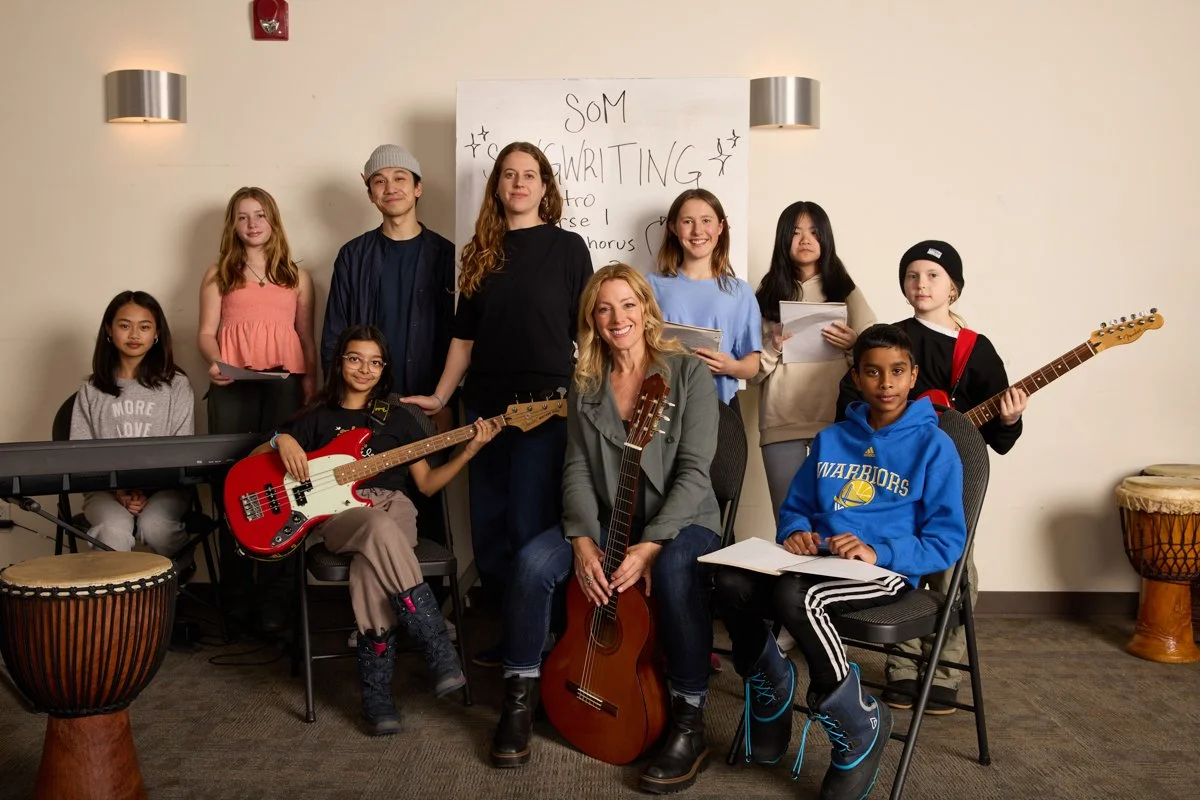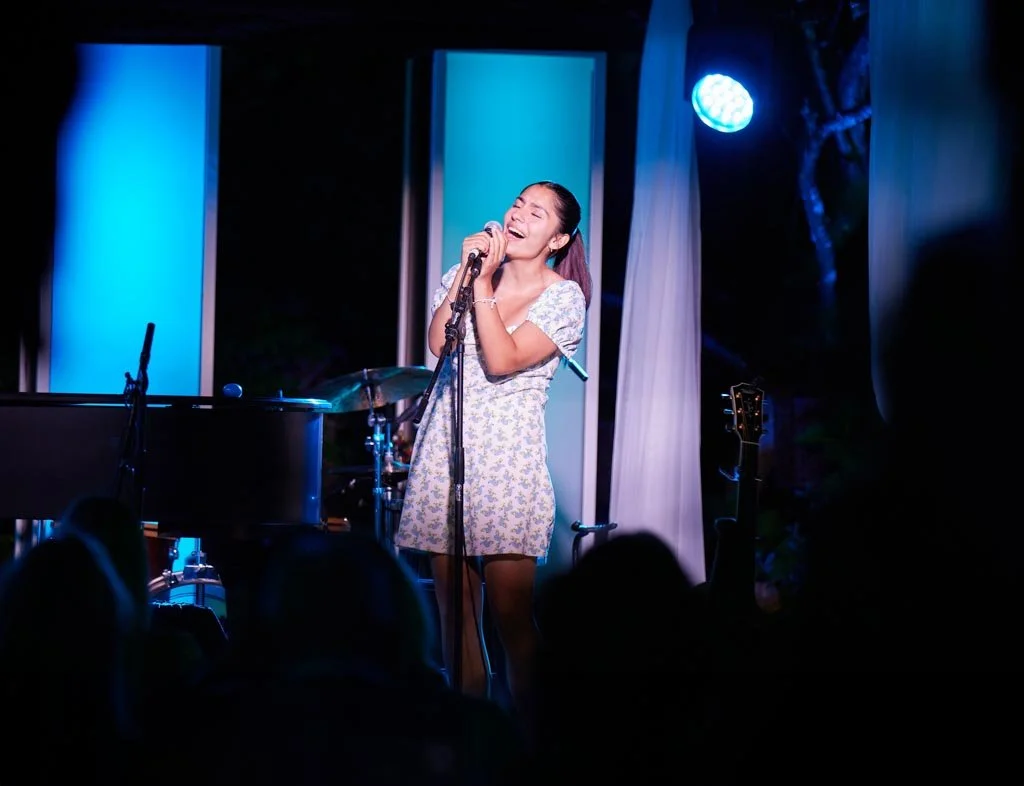
music
THE IMPACT OF
Music has the unique ability to connect, heal, and inspire. At SoM, we harness this power to change lives, offering young people a safe space to grow and thrive through the universal language of music.

The Power of Music at SoM
SoM is a Community Music Program
Community music (CM) “believes that everyone has the right and ability to make, create and enjoy their own music and that active music-making should be encouraged and supported at all ages and at all levels of society”. Completely unique in the youth support space, SoM offers inclusive community music education designed to help children and youth from equity deserving populations build self-esteem, develop resilience and connect with others.
music?
WHY
Music is more than just an art form—it’s a powerful tool for learning, growth, and self-discovery. Research has proven that learning to play an instrument or sing not only enhances creativity but also strengthens brain function, improves academic performance, and supports emotional well-being. At SoM, we believe every child should have access to these life-changing benefits.
Cognitive and Academic Benefits
Learning music enhances brain structure and function, leading to better memory, attention, and problem-solving skills. Studies show musically trained individuals have more grey matter and stronger neural connections (RCM, 2014).
Stronger Brain Development
Higher IQ and Academic Performance
Children who receive music education demonstrate greater increases in IQ compared to those in drama or no extracurricular programs (University of Toronto, 2004). Students in higher-quality music programs also score higher on standardized tests in English and math (RCM, 2014).
Improved Speech and Reading Skills
Just four weeks of music training has been shown to dramatically improve verbal intelligence in young children (Moreno et al., 2011).
Enhanced Creativity and Critical Thinking
Research shows that individuals with musical training have stronger communication between the right and left sides of the brain, fostering creativity and innovation (Hyde et al., 2009).
Emotional and Social Benefits
Group music-making fosters connection and community, helping young people feel supported and valued (Goopy, 2023).
A Sense of Belonging
Students are drawn to music for learning but gain the most in life skills, including self-expression, discipline, and resilience (Goopy, 2023).
Personal Growth and Confidence
Research confirms that active musical experiences improve social and mental health, particularly when targeted toward youth facing barriers (Trainor, 2020).
Resilience and Emotional Support
Our Approach
At SoM, we believe music education should be inclusive, empowering, and student-centered. Our approach goes beyond traditional teaching methods, creating a safe and supportive space where students can explore, express themselves, and grow both musically and personally.
Student agency: Encouraging students to take ownership of their learning and creative expression.
Focus on mental well-being and safe spaces: Prioritizing emotional support and fostering a sense of belonging.
Strengths-based approach: Helping students build confidence by recognizing and developing their unique talents.
Teachers as facilitators of music-making: Guiding and supporting students rather than directing them.
Accessible alternatives to traditional music education: Offering inclusive and adaptable learning methods.
Flexible, generative approach: Adapting to students' needs and interests rather than rigid curricula.
Emphasis on process over product: Valuing exploration and creativity over perfection.

impact
REAL STUDENTS, REAL
“SoM made me feel like it was okay to be myself, and because of that, I grew and found who I was through music. SoM is the reason for that, giving me a way to express myself.”
Nirvana
“I was a very high-risk youth, and now I’m just like, chilling, you know? I’m not high risk at all anymore. And I just feel like it has to do with this place.”
Ronnie
“SoM is a music school, but not like school. A sense of community. and I could talk to almost anyone. Welcoming. Support. Interacting with younger and older kids. Teachers talking to kids as if they are people”
Logan















